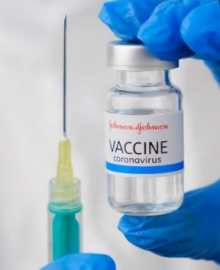
A study on vaccine efficacy against COVID-19 variants has shown that the Johnson & Johnson vaccine works better against the Delta variant, and gets better over time with both Delta and Beta variants.
This follows a study conducted where 10 participants received one dose, and 10 participants received two doses of Johnson & Johnson COVID-19 vaccine up to eight months.
The study which was completed on 17 May 2021 was presented by South African Medical Research Council (SAMRC) CEO, Professor Glenda Gray, during a media briefing on Friday.
According to the study, recipients of Johnson & Johnson vaccine produced strong neutralizing antibodies over the course of at least eight months.
“The study shows that the single shot Johnson & Johnson vaccine works against the Beta and Delta variants at eight months. All the immune response data indicate good immediate and sustained immune response against Delta.
“We don’t need to boost the Johnson & Johnson vaccines just as yet, but we need following up participants to see when the durability in the immune system responds,” Gray said.
Vaccine efficacy
Also presenting laboratory studies on vaccines used in South Africa, Professor Penny Moore, from the National Institute for Communicable Diseases (NICD), said that a net study of several COVID-19 vaccine trials suggest that neutralising antibody levels, are highly predictive of immune protection from symptomatic COVID-19 infection. It also suggests evidence for neutralising antibodies as a protective correlate for COVID-19 vaccines.
“Neutralising antibodies correlates with vaccine efficacy [and] laboratory studies provide a measurement of how well vaccines will work, complementing clinical studies. Existing laboratory data suggests that vaccines in use in South Africa will work better against Delta than Beta variant,” Moore said.
Plenty vaccines to rollout vaccination programme
On the status of the vaccination rollout programme in the country, Dr Nicholas Crisp said South Africa has received plenty of vaccines to rollout its programme for the next few weeks.
Crisp said in order to scale up the vaccination from 20 000 people currently vaccinating per day to 200 000 and 300 000 people, more vaccination sites are needed to be opened and more people in the remote areas were routinely coming in for vaccination.
“We are already planning for the uptake of the next age of cohorts which is the 40-49, and has seven million people on it. The reason we are targeting age groups, is because there is plenty clinical evidence that age is a major factor more than any factor in keeping people well and out of hospital with severe infections,” Crisp said. – SAnews.gov.za


